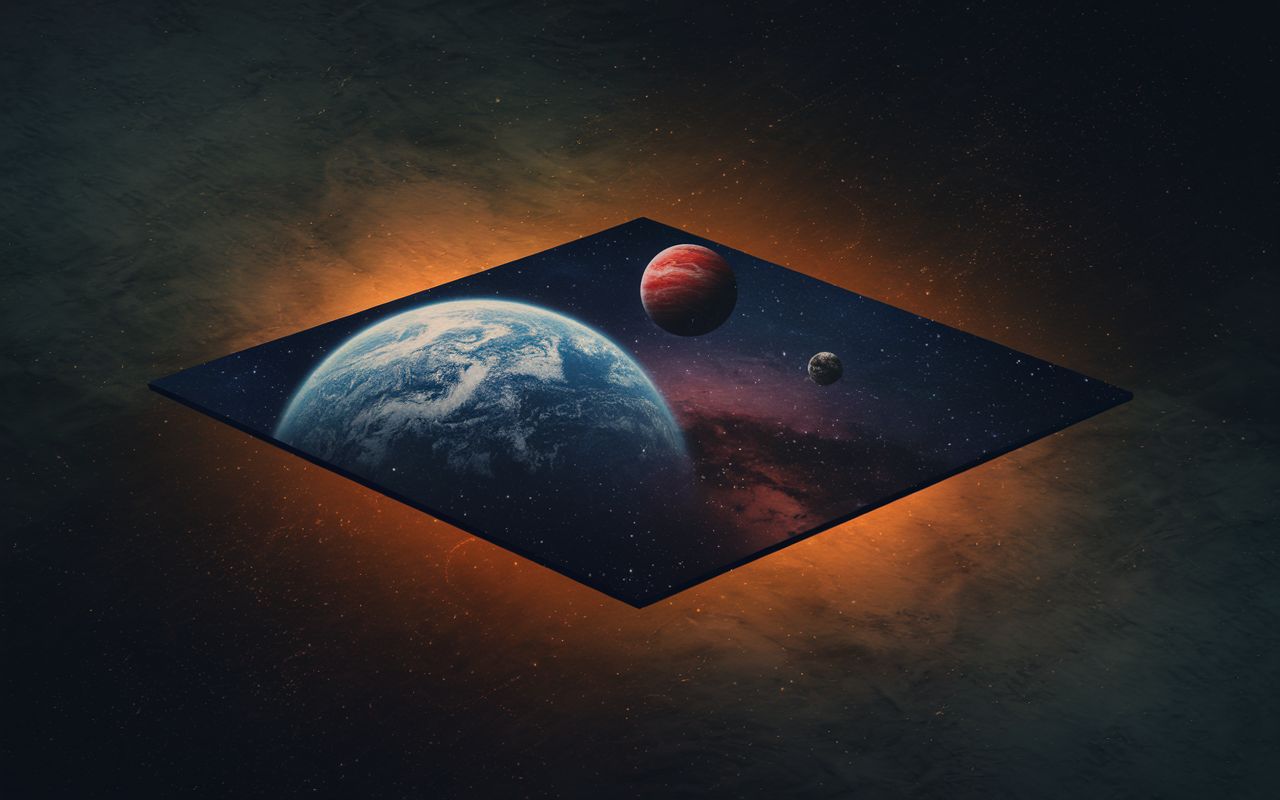Is our universe floating in a higher-dimensional space?
Follow us on Google News (click on ☆)
In a leading cosmological model, dark energy is introduced via a cosmological constant in Einstein's equations. This constant remains enigmatic, raising questions about its exceptionally low value and counterintuitive properties. It exerts negative pressure and does not dilute with cosmic expansion, puzzling many researchers.

In light of these anomalies, scientists are seeking alternatives to explain cosmic acceleration. Among them, some have contemplated a time-reversed anti-universe. However, recently, another model has emerged: the braneworld model.
This model posits that our universe is a "brane," a three-dimensional structure floating within a higher-dimensional space. By using a variable brane tension and modifying Newton's constant, this model redefines cosmological dynamics. Here, Newton's constant becomes a scalar field, playing a role similar to that of matter fields, while the matter itself acts as effective dark energy.
The results obtained show that it is possible to explain dark energy without resorting to a cosmological constant. This model simplifies the theoretical framework by using only known fields, making the approach more elegant and coherent with current observations.
For some, this could mean that we live in a higher-dimensional universe, rather than one dominated by dark entities. However, accepting this idea necessitates rethinking some foundations of gravity, which still divides the scientific community.
It is up to science to observe and decide between these models. A future breakthrough could finally lift the veil on these mysteries, transforming our understanding of the cosmos.
What is dark energy?
Dark energy is a mysterious force that accelerates the expansion of the universe. Discovered in the 1990s, it accounts for about 70% of the total energy in the universe, but remains poorly understood.
Scientists know that it exerts negative pressure, causing the universe to expand ever more rapidly. Unlike ordinary matter, dark energy does not dilute with cosmic expansion, making its study particularly complex.
Several hypotheses exist to explain dark energy, including the cosmological constant in Einstein's equations. This constant, although theoretically possible, remains enigmatic and fuels debates about the true nature of this force.